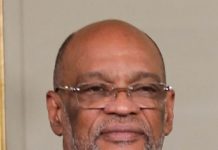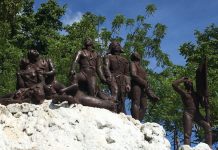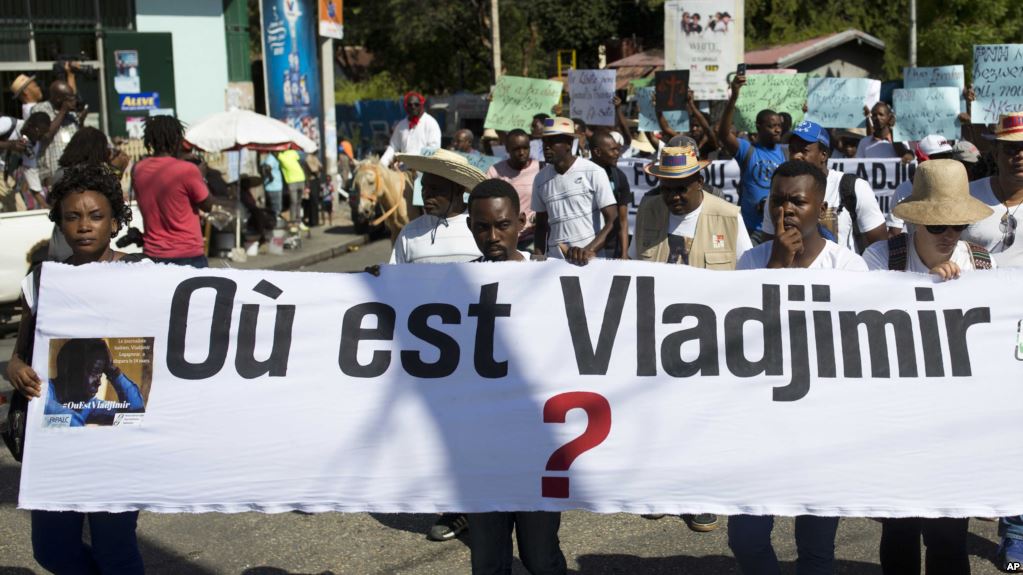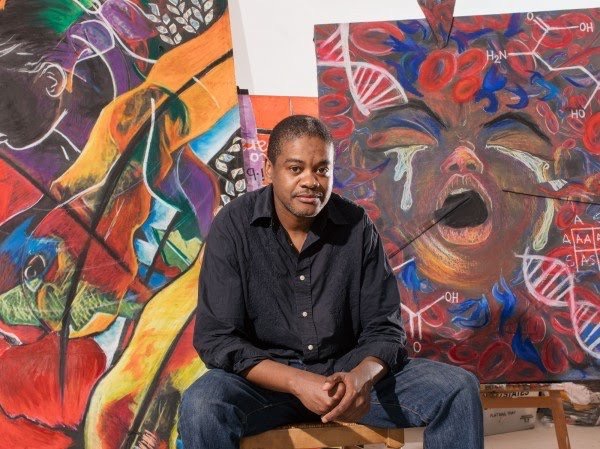LAWRENCE – Inspired in part by global uprisings and empowered by technology, the youth-led protesters who have taken to Haiti’s streets in the past month to demand change from a corrupt and entrenched system seem like the troubled island nation’s only hope.
This is the analysis of the current situation by Cécile Accilien, associate professor and interim chair of the University of Kansas’ Department of African & African-American Studies and director of KU’s Institute of Haitian Studies. A Haitian native, she is available to the press to comment on the ongoing unrest in her native land.
Haitians in their 30s and younger have not known any type of stability, Accilien said. Corruption, injustice and impunity have been institutionalized, and people are fed up, she added.
The social movement touched off by the hashtag campaign #Petrocaribechallenge is filled with youths inspired by other movements such as the French yellow vests, Y’en a Marre in Senegal, Occupy Wall Street and the Arab Spring, Accilien said. The fact that these nonpartisan groups and other subgroups, such as #KotKòbPetwoKaribea” (Haitian Creole for “Where is the Petro Caribe money?”) remain active in the fight for transparency and accountability regarding the embezzlement scandal is crucial.
While this is not the first time public funds have “disappeared” in Haitian history, this is the first time that technology has made it difficult, if not impossible, for the government to hide information about money laundering and corruption.
Even as she endorses the anti-corruption protesters, Accilien urges observers to look behind the headlines and be aware that Haiti’s elites have probably played an important role behind the scenes in fomenting this latest outburst, as they have Haiti’s ongoing instability.
To explain, Accilien read from a sardonic text a relative recently sent to her via social media:
“It says when a Haitian becomes rich, his bank accounts are in Switzerland. He goes to France to get medical treatment. He invests in the Dominican Republic. He buys things from the United States and China. He goes to Rome or to Mecca. His children study in Europe. He goes to Canada, the U.S. and France on vacation. And when he dies, he wants to be buried in his native country, in Haiti.”
It’s a bitter joke, Accilien said, about the “1 or 2 percent” of the nation’s most wealthy and powerful who are often the silent power behind the throne of Haiti’s democratic government.
Accilien said Haitians have a term for these hidden string-pullers.
“In French, it is ‘politique de doublure,’ which literally means a politics of the double, whereby the elite usually controls the country’s economy and yet … won’t appear openly to be meddling in its governance. But behind the scenes, they do want (to control) who’s controlling the country,” Accilien said. “I’m not saying people shouldn’t protest, but the protests are not as simple as they often seem. That’s what people have to keep in mind.”
Accilien said there was a moment of hope for the world’s first black republic after protesters brought down the 29-year-old Duvalier family regime in 1986 and a few years later democratically elected their first president, Jean-Bertrand Aristide.
“The average person wanted things to change,” Accilien said. “But now, more and more, a lot of what is happening, I’m skeptical. How much of it is generated by the people, and how much of it comes from the powers that try to keep their political, social and economic power? This is by no means to say that the government itself is not corrupted. In fact, even before President Jovenel Moïse was elected, the elections were contested, and there were rumors of money laundering. Since the Duvaliers, there are probably two presidents who have finished their term. This is ridiculous. It’s absurd.”
By constantly supporting the political opposition to whoever holds power in Haiti, Accilien said, the country’s elites foment chaos and maintain their own behind-the-scenes control.
Today’s protesters are asking for a more equitable and socially just society. But in order to achieve that, Accilien said, the elites must share that sense of justice, seeing Haiti not just as a country from which they can take, but one to which they should also give. Haitians need government and elite leadership to build sorely needed infrastructure — health care, education and roads — leading to greater economic and social stability, Accilien said. And to be sustainable, this progress must be shared by all, no matter their economic class, language or whether they live in urban or rural areas.
Accilien called for a new order based on the Haitian proverb “Tout moun se moun, tout moun pa menm” — “Everyone is an individual, but everyone is not the same.”
The University of Kansas is a major comprehensive research and teaching university. The university’s mission is to lift students and society by educating leaders, building healthy communities and making discoveries that change the world. The KU News Service is the central public relations office for the Lawrence campus.





























![Phyllisia Ross – KONSA [Official Music Video]](https://haitiville.com/wp-content/uploads/2014/08/phyliisia.jpg)










